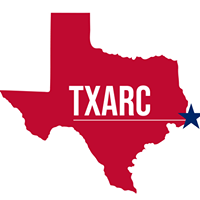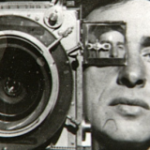Pennsylvania already denies adoptees access to their birth records. Now activists are fighting a proposed law that would make it a crime to search for birth parents.
by Frank Lewis
The meeting occurred almost 20 years ago, but Sue Romberger still recalls the frustration of sitting across a desk from a woman who could answer all her questions about her mysterious past, but wouldn’t.An adult adoptee, Romberger went in 1980 to the agency that handled her adoption, seeking information that would help her find her parents. She’d obtained her original birth certificate, but hadn’t been able to locate her birth mother with the limited information it provided. The woman at the adoption agency doled out tidbits that were of little value to her search while Romberger fought the urge to lunge across the desk and grab the file from her hands.
“And then she finally slipped,” Romberger recalls. The woman gave her a detail that indicated Romberger’s mother had lived in Montgomery County (the birth certificate had suggested she lived in western Pennsylvania). “And to this day I don’t know if she slipped on purpose or by accident.”
She found her maternal grandparents’ phone number, and posed as a student working on a genealogy project. Her grandfather politely answered her questions, and when she was sure she’d found the right family, Romberger told him who she was. “There was a pause,” she recalls, “and then he gasped a lot – he had emphysema – and I thought, ‘My God, I killed my grandfather!’
“And finally he said, ‘How are you, dear?'”
Adoptees who are still searching would consider Romberger one of the lucky ones. She began before 1984, the year the Commonwealth of Pennsylvania became one of the last states to join a nationwide trend that grew during the baby boom following World War II – the sealing of records pertaining to adoptions. Legally, adoptees and birth parents have no right to the information that could help them locate those from whom they were separated. Their request for their birth certificates would be met with a polite but firm “no.”
And if some state legislators have their way, the restrictions on access to information will be made tighter. Earlier this year, a state representative from Lebanon County introduced the Uniform Adoption Act (UAA), which is based on a bill hammered out in 1994 by a panel of attorneys and other appointees, with input from many involved personally or professionally in adoption. In early March, the bill was assigned to the State House’s Judiciary Committee.
As the name implies, the Uniform Adoption Act was designed to make adoption laws the same in all states – and it will, if it’s passed in each state, as its framers intended.
But here and across the nation, the UAA is meeting fierce, grassroots opposition from adult adoptees, birth parents and even some adoptive parents. Their nickname for the bill, the Evil Act, reflects not only the intensity of their disdain for the legislation, but just how tangled up in emotion the entire issue has become.
At its heart, the debate over access to records is about rights. A birth certificate is nothing more than a piece of paper with an official seal, but to many adoptees, it represents a connection to the past that virtually all nonadopted people enjoy, and often take for granted. Who is the state, or the adoption agency, they ask, to say that I can’t have that connection, that my family tree may only be made up of branches borrowed from my adoptive parents? Many describe this denial of such basic information as an attempt to keep them in a state of perpetual childhood.
The woman at the adoption agency doled out tidbits that were of little value to her search while Sue Romberger fought the urge to lunge across the desk and grab the file from her hands.
But on the other hand, not all birth parents want to be found, and the UAA affords them at least some protection from unwanted reunions. Does the adopted child’s right to know outweigh his or her mother’s right to privacy? Who could judge such a weighty matter? Is the UAA perhaps the closest our society can come to a system that balances the rights and best interests of all concerned?
Opponents say no. “I had no choice,” says Linda Hurd, who has been searching for 10 years for the twin boys she relinquished in 1969. “They should have the choice I never had.”
Given the deeply personal nature of adoption, it’s likely that any piece of legislation would raise the ire of some segment of the adoption community. But despite the efforts of the National Conference of Commissioners on Uniform State Laws (NCCUSL), which wrote the bill after many hearings and debates, the Uniform Adoption Act managed to fall short of almost everyone’s expectations.
Most critics of the UAA can rattle off several reasons why they can’t support it. For example, the bill forces the birth mother to wait until after the child is born to decide whether to keep it, then shortens the revocation period – the amount of time she has to change her mind – to eight days. Most opponents say this is an absurdly narrow span of time in which to make a life-altering decision. “And it doesn’t take into account postpartum depression,” adds Romberger. And apparently if the child is older than eight days, there is no revocation period.
The bill also “essentially circumvents notification of the birth father so as to avoid the necessity of gaining his consent,” says Ann Wilmer, an adoptee and a professor of journalism and communications at Salisbury State University in Maryland. Current and former spouses are entitled to notification of the mother’s intent to place the child for adoption under the UAA, but with births outside the formalities of marriage, the bill is less adamant: “[A] parent having legal and physical custody of a minor may place the minor for adoption, even if the other parent has not executed a consent or a relinquishment or the other parent’s relation to the minor has not been terminated.”
Invariably, however, opponents of the UAA come to what may be its most controversial element: the criminalization of searching.
Pennsylvania, like most states, denies adopted children and adults access to their original birth certificates; only information that does not identify the birth parents is given out. Often the documents are altered. Romberger, who was raised knowing she was adopted, recalls attempting to obtain a copy of hers at age 15, so she could apply for a learner’s permit. She was shocked to find that the document she received listed the names of her adoptive parents. “And I thought, ‘Oh my God, the state’s in on this too!’,” she says.
The UAA goes one step beyond hiding the truth by making it a crime for adoptees or birth parents to obtain information deemed off-limits by the state. The penalties can include fines and jail time, although the Pennsylvania version allows only for the former.
A 1995 article in Adoptalk, a publication of the North American Council on Adoptable Children, criticized these provisions as unnecessarily stringent: “While the Act allows birth and adoptive parents to make early arrangements to facilitate contact when the child is 18, children of parents who do not make this provision lose the option of seeking information. If any of the four parents resists disclosure, the adoptee is condemned to a life without history; the Act mandates secrecy for 99 years and deters illicit disclosure through a system of significant fines and other legal penalties.… The Act so tightly controls disclosure that information gathering could become virtually impossible.”
That, of course, was the point. William Pierce, head of the pro-UAA National Council For Adoption (NCFA), argues that adoptees simply do not have a right to the information so many of them seek.
“The argument is that somehow, if you were adopted, you have rights to another person’s medical records,” he says (the importance of knowing one’s family medical history is often cited as a reason why adoptees and birth parents should be allowed to find each other). But the right to know about oneself, he says, does not trump another person’s right to privacy. Even if that person is the woman who gave birth to you.
“If you tinker with the right to privacy in the adoption area,” he adds, “then you open a loophole to tinker with the right to privacy in another area.”
As for the UAA’s proposed penalties for searching, Pierce says: “Laws without sanctions are worthless, meaningless laws.”
Nonsense, say opponents. “We see the fight to keep records sealed as a self-protective move by the adoption industry,” says Cynthia Bertrand Holub, a Germantown resident and member of the executive board of Bastard Nation, a national adoptees’-rights organization.
In UAA opponents’ eyes, the sealing of birth records violates what should be the guiding principle of all adoption law: Do what is best for the child. In reality, they say, shrouding everything in secrecy was nothing more than a way to make the process easier for adoption agencies and adoptive parents.
The UAA goes one step beyond hiding the truth by making it a crime for adoptees or birth parents to obtain information deemed off-limits by the state.
Adoption was nowhere near as common in the early part of the 20th century as it is today, but when it did occur, records were not off-limits to adult adoptees, according to Family Matters: Secrecy and Disclosure in the History of Adoption, by E. Wayne Carp (1998, Harvard University Press). That began to change in 1938, when the Child Welfare League of America, reacting to growing acceptance of adoption, published its first set of adoption standards. Among them was the recommendation that adoptive parents’ identities be kept secret from the birth parents.
From 1935 to 1965, adoptions increased ninefold, according to Carp. Demand, created by the postwar emphasis on family life, rose along with supply, the result of the baby boom and the increasing number of out-of-wedlock births among the middle and upper classes. Holub says the desire to “preserve the middle-classness of these women, so they could relinquish their [illegitimate] child and go home as if nothing had happened,” was one of several forces that led states to seal adoptees’ birth records.
And secrecy, she explains, became a marketing tool that adoption agencies could use to allay the fears of both birth mothers and adoptive parents.
But secrecy also made it possible for agencies to lie – and they did, perhaps more often than not, activists claim. Romberger knows a birth mother who was assured that her requests – that her daughter be placed in a Jewish home with other children – would be honored. When they were reunited years later, the mother learned that her daughter had been raised Catholic and was an only child. Another friend of Romberger’s learned, also through a reunion, that her daughter had been given incorrect information about her ethnicity, date of birth and her family’s medical history.
Deceptions have worked both ways. Several weeks ago, The New York Times Sunday Magazine published a lengthy article about a couple who never knew that the mother of the boy they adopted had a history of mental illness until he developed schizophrenia as a young adult.
Linda Hurd, who gave up twin boys in 1969, wonders what she’ll learn if she’s ever reunited with her sons. In 1992 she paid the adoption agency $300 to conduct a search for her, and that search continues to this day – and only because she has refused to take “sorry” for an answer. Every time she calls her contact at the agency, she can hear the woman shuffling through files on her desk. In her heart she believes those documents contain the names of her sons.
“I can hear the papers rustling,” she says, her voice equal parts anger and pain, “and I feel like reaching right through the phone.”
Bill Pierce of the NCFA readily concedes that “there’s no such thing as a perfect uniform act,” least of all for a matter as complex as adoption. But the UAA, he says, is the best compromise anyone could expect.
The UAA grew out of a process of hearings and debates that was “wide open” to everyone with an interest in adoption. NCFA didn’t get its way on all points, he notes; for example, he says the bill makes it possible for a birth father to “out” a birth mother who’d rather remain anonymous to her child (the UAA calls for voluntary registries for birth parents who wish to waive their right to privacy). “We lost that battle,” Pierce says.
But he makes no apologies for supporting those elements of the bill that so outrage opponents. Regarding the provisions that allow a birth mother to cut the father out of the process under certain circumstances, he says: “If you don’t know the name of the woman you had sex with, if you have no relationship with her to the point that you would have no idea she is pregnant [and would miss the deadline for contesting the adoption in court], what kind of a father are you going to make?… It clearly does not make sense to give uninvolved men, who in some cases are essentially just sperm donors, the right to interfere.”
Pierce also dismisses concerns about the eight-day window for making the decision on whether to keep the child. At UAA hearings, some called for a 24-hour deadline.
“Hospitals are booting mothers out sooner these days,” he explains. “And the thought of most people [involved in adoption] is, [the mother] needs to make a decision. If she’s going to take that baby home and raise it, fine. But if she takes that baby home, psychologically, she is making the decision to raise that child.… The only thing a delay is going to do is put you on tenterhooks longer. If you have any doubts, don’t place the child.”
Opponents, however, say these provisions – indeed, the entire UAA – are designed primarily to make adoption faster and easier for the adults involved, the adoptive parents in particular. They point out that the bill frequently mentions “the best interests of the child,” but never attempts to spell those out.
“People are desperate for babies in this country,” says Romberger, and not coincidentally, the UAA “opens the door for more privatized adoptions” through lawyers, which often cost more but require less waiting. (Actually, the UAA allows “another person,” not necessarily an attorney, to manage an adoption.) Adds Holub of Bastard Nation, “It’s a very lawyer-driven document… and very adoptive parent-friendly, from our point of view.”
The eight-day revocation period is especially absurd to activists who are birth mothers. Hurd says she had to be hospitalized due to severe depression after her parents “disowned” her because she’d gotten pregnant.
“The only thing I remember [about the adoption],” she says, “is a social worker came and picked me up from the mental hospital and took me to court to sign the [adoption] papers.”
Mary Jo Graham, a Center City resident, gave up a baby girl 16 years ago, and the decision has weighed on her mind every day since.
“I was brought up on the Main Line, and you just didn’t get pregnant,” she recalls. “You could kill somebody, but Jesus, don’t get pregnant.”
She was 18 and in college. She hid the pregnancy until the very end, which only heightened the shock for her parents. She took Meghan Anne home and breastfed her – “not a bright decision, I might add” – for two weeks, but ultimately relented to the constant pressure from her family to give the newborn up for adoption. To this day, she says, “I regret it with every fiber of my soul.”
“It was the beginning of a long, dark period” of drug use and bad relationships, she adds. “Once you’ve done something of that magnitude, you question everything else you do.… It’s not like a death, where you have some finality. It never ends. I walk down Walnut Street and think, ‘Oh my God, could that be [her]? Oh my God, could she be one of those kids killed in that car accident on the news?’
“It never ends.”
Mary Jo Graham was 18 when she gave up Meghan Anne, in 1983.
But not all birth mothers feel the same. Graham says she’s never met a birth mother who didn’t long to know that her child was safe and happy, but that’s not the same as wanting to be reunited. The fact that most adult adoptees who join the various voluntary registries don’t find their birth parents suggests that some mothers, for whatever reason, choose to remain a mystery.
And so the question remains: Whose rights should prevail? Pierce and the NCFA choose to err on the side of confidentiality, and 47 states agree. (Kansas and Alaska never sealed birth records, and Oregon is in the midst of a political and legal battle over the matter. Voters passed a ballot measure calling for open records last year, but implementation has been postponed pending the outcome of legal challenges.)
The UAA’s future in Pennsylvania is uncertain. Opponents say they’ve convinced a few of the bill’s dozen-odd co-sponsors to withdraw their support. One of them, State Rep. Robert Godshall, a Montgomery County Republican, says he signed on to the bill because he thought it simply unified the various state laws pertaining to adoption. “I did not know… that it went that far,” he explains, referring to the criticisms that opponents brought to his attention.
This is not to say the issue will pass quietly. As with other issues of such a personal nature, like abortion, the debate is heavily influenced by the participants’ morals and personal experiences. Middle ground is maddeningly elusive, as each side tends to view the other as woefully ignorant.
“The child’s needs and wants and wishes come above mine or the adoptive parents’ wishes,” Graham says emphatically. “The question, ‘Where do I come from?’ – that’s very primal. And the right to know that trumps any constitutional right.” Referring to birth mothers afraid to be found, she adds, “You’re going to have to learn to face up to what you’ve done anyway. Again, it goes back to the needs of the child.”
“I find [adoption law] so discriminating, heartless and violating,” says Mary McKeon, a Norristown native now living in California who is both an adoptee and a birth mother. “These people [who support the UAA], how do they know how an adoptee feels? How do they know how a birth parent feels? Do they even care? What about our emotions and rights of wanting something that is rightfully ours?”
“Adoption is a handshake agreement over the head of a person,” says Romberger. And that’s fine for children, she adds. But an adult should be trusted to make his or her own choices about dealing with the past.
Romberger’s reunion wasn’t entirely smooth. Her maternal grandmother couldn’t accept this unexpected reminder of an unpleasant matter she’d thought long settled. So in the interests of family harmony, Romberger was introduced to her mother’s other, younger children as a friend of the family. And that was what she remained until years later, when her mother was dying of cancer and the oldest of Romberger’s siblings admitted she knew her mother had given up a daughter for adoption many years ago, and lamented that she’d never known her big sister.
“There were some awkward moments,” says Betsy Tucker, Romberger’s younger sister. “But nothing we couldn’t work through.” Today the sisters are very close, and Betsy is also an adoption activist. Last year the two worked a table together on Registration Day, enrolling adoptees and birth parents in an international database in the hope that they can be reunited (See sidebar, “Adoption Online”).
Not surprisingly, Betsy also supports access to birth records. “My feeling is, if you don’t want to be found, change your phone number.”
Romberger loves her adoptive parents, but explains that finding her birth family gave her a connection to the world – to “the tree of humanity,” as she puts it – that she’d always lacked. She explains her point with a story about shopping with two of her siblings a few years ago.
“The clerk said, ‘You guys are all sisters, aren’t you?’ And I burst into tears. No one had ever said that to me in my whole life.”


 New York Adoptee Rights Coalition
New York Adoptee Rights Coalition











